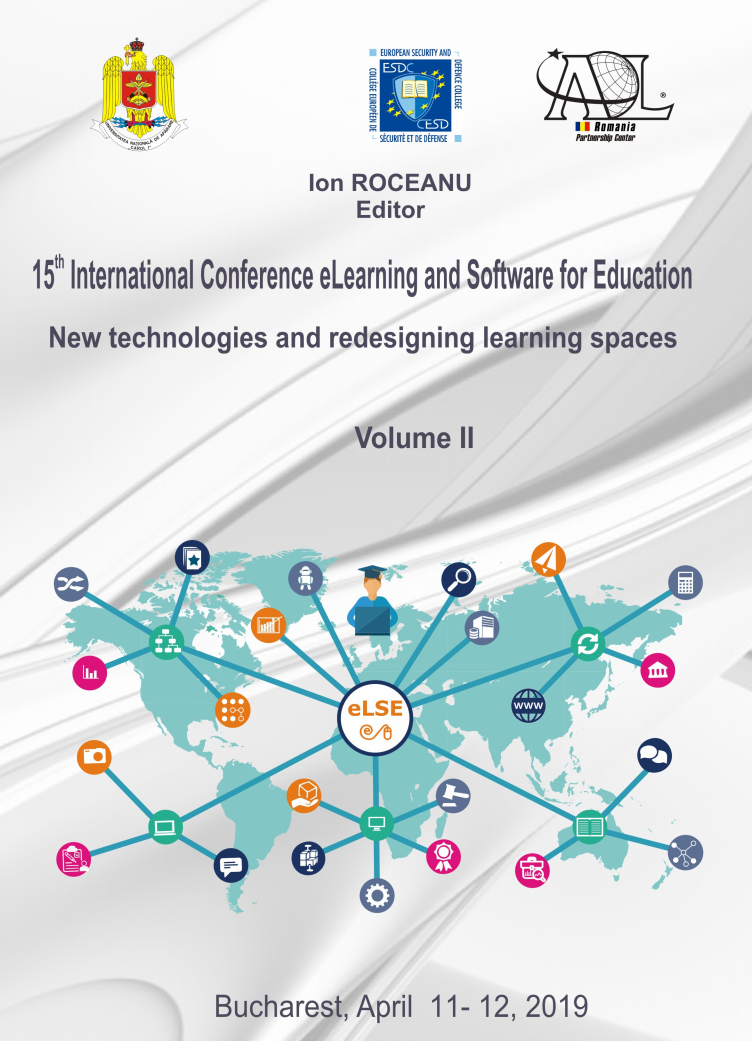Using e-Portofolios in Teaching English for Academic Purposes – Developing Independent Learning Skills
Using e-Portofolios in Teaching English for Academic Purposes – Developing Independent Learning Skills
Author(s): Cristina Felea, Liana StancaSubject(s): Social Sciences, Education, Higher Education
Published by: Carol I National Defence University Publishing House
Keywords: E-portfolio; English for Specific Academic Purposes; Self-directed learning; Transversal skills;
Summary/Abstract: E-portfolio; English for Specific Academic Purposes; Self-directed learning; Transversal skills;For almost two decades now, e-portfolios have represented a way to document the paradigm shift to a learner-centric approach in higher education due to technological advance. Extensive research has provided evidence for two major purposes for the implementation of e-portfolios: showcasing student achievements along their study programs and into the job market and supporting self-directed/independent learning by offering them the necessary scaffolding to take control of the learning process. This paper addresses a twofold need: in the local context, it aims to develop a research model that would facilitate the collection of data and a deeper understanding of the effects of the transition to a technology-enhanced learning environment. Within a more general context, it aims to contribute an analysis model of student learning in the digital era based on e-portfolios pedagogy. At both levels, students are considered as digital natives that are increasingly aware of and concerned with developing skills and strategies meant to facilitate a more efficient integration on the current dynamic job market. The study continues an almost decade long preoccupation with finding ways of embedding transversal and job-related skills in teaching foreign languages for specific academic purposes in Babes-Bolyai University and with facilitating students’ reflective practice and peer learning. The introduction of the e-portfolio as a collection of digital artefacts is related to the learning process and final outcomes in the area of information processing. Answers are expected to questions such as: do students see e-portfolios as efficient tools in developing their transversal and job-related skills? Does student engagement with the course increase during the process of building the e-portfolios? By following the process steps (managing their own learning), do students develop their self-directed skills and autonomy? To find out the answers, a quantitative analysis was performed on complex data collected from students’ work, learning outcomes and a final survey. A selection of data is also used to illustrate the potential of this instrument to help students become autonomous, independent learners, eager to participate actively in the learning process and capable to identify opportunities for self-improvement and a rich learning experience. The results are expected to offer important evidence on the fact that the sense of property and control over learning can be a high motivator in the learning process. The findings could also contribute to re(de)fining a de-centered perspective in pedagogy, where teacher and students work together to find solutions to develop and permanently adjust their competences to the academic and job market environments.
Journal: Conference proceedings of »eLearning and Software for Education« (eLSE)
- Issue Year: 15/2019
- Issue No: 02
- Page Range: 395-402
- Page Count: 8
- Language: English

